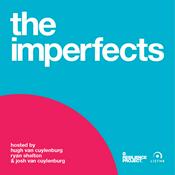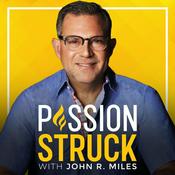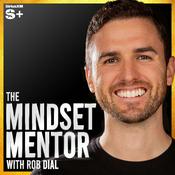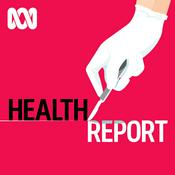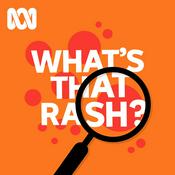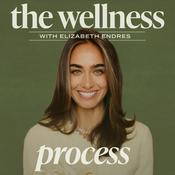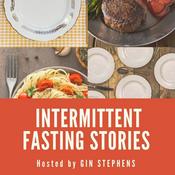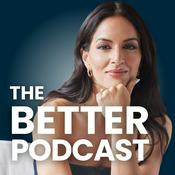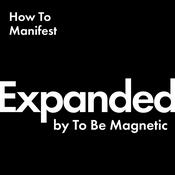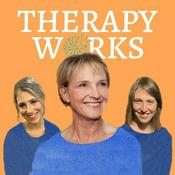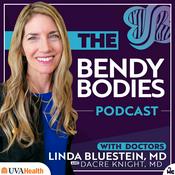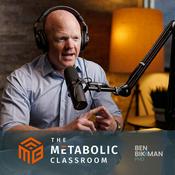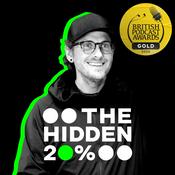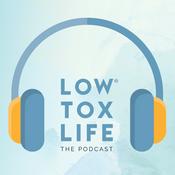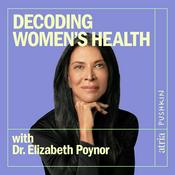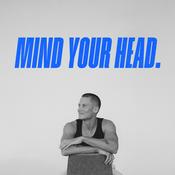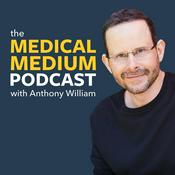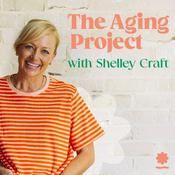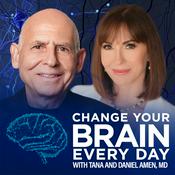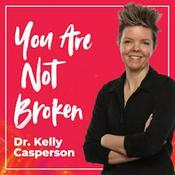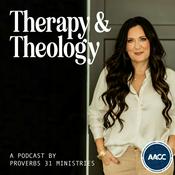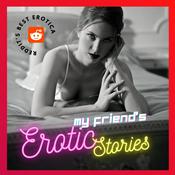55 episodes
- This episode is split into two parts - the first part is banter between Paige and Ellie. We chat about recent hacks and learnings we've had, we discuss the differences we're noticing in our biometrics (recorded by our Oura rings) and we also clarify why you may not have been let into our Reddit yet...
Then we learn - WTF is ADHD coaching? And how is it different from therapy or life coaching? We’re joined by ADHD coach Marium (from ADHD Empowered), who shares how she moved from corporate life and international teaching into specialised ADHD coaching after seeing how misunderstood and unsupported neurodivergent people often are.
We unpack:
Who ADHD coaching is for (from teens to late-diagnosed adults)
How to know if you’re “ready” for coaching
The key differences between ADHD coaching, therapy, and traditional life coaching
How coaches help clients who know what to do but can’t execute
Addressing shame, grief, and the belief that you’re “broken”
Marium explains why ADHD coaching focuses on the “what” and “how” rather than the “why,” how understanding your brain can be life-changing, and why strengthening executive function matters more than visualising success.
Next week, we'll play out the other half of our chat where Marium provides practical advice and some reassuring words for our fellow ADHDers.
Contact Marium if you're interested in ADHD coaching HERE.
Book a session with Ellie at ellieonthetelly.com
LINKTREE
SOCIAL @wtfisaudhdpodcast
Hosted on Acast. See acast.com/privacy for more information. - Trigger Warning: This episode includes discussion of suicidal thoughts, emotional manipulation / boundaries and trauma. Please listen with care.
In part two of our conversation with Jen, we go deeper into the cost of living in survival mode for almost five decades - and what happens when the body and brain can no longer keep up.
Jen shares how perimenopause intersected with her AuDHD and long-term burnout, amplifying symptoms and stripping away coping mechanisms that had held her together for years. We unpack early warning signs of burnout and perimenopause that are often missed or misattributed, particularly in late-diagnosed neurodivergent women.
We talk about delayed processing and how it has impacted Jen’s relationships, safety, and sense of self — including how manipulation and abuse can go unnoticed until the nervous system finally has space to process what happened. Jen reflects on how pursuing a PhD exposed both her strengths and her limits, and the profound toll this took on her mental health.
This episode is an honest, vulnerable conversation about collapse, grief, and the necessity of radically changing your life when survival is no longer sustainable. It’s for anyone who feels like they’ve been “coping” for decades - and are only now realising the cost.
FOLLOW @autistic_connections (Jen)
Book a session with Ellie ellieonthetelly.com
SOCIAL @wtfisaudhdpodcast
LINKTREE
Hosted on Acast. See acast.com/privacy for more information. E52 | Misdiagnosis in your 20s to late diagnosis in your 40s - with AuDHDer Jen
02/02/2026 | 46 mins.In part one of our conversation with Jen @autistic_connections, we get chatting about the reality of being a late diagnosed AuDHD women, who also hit burnout in conjunction with perimenopause (poor Jen!).
Jen shares her journey to diagnosis, how she was completely missed as a child, and then given incorrect diagnoses throughout her 20s, and the juxtaposition of being 'smart' but feeling 'dumb'. Jen talks about struggling with “basic” daily tasks, yet being capable of getting First Class Honours at University, before her nervous system hit breaking point, and how autistic burnout was the catalyst for diagnosis.
We talk about what it’s like to be a deeply empathetic person who sometimes struggles with connection, and we explore the difference between cognitive and affective empathy, and how misunderstanding empathy in autistic people causes harm.
Jen also opens up about the grounding, regulating role her two dogs play in her life - each meeting different emotional needs.
In next week's episode, Jen covers early signs of her neurodivergent tendencies, how autistic burnout and perimenopause interact with each other, why she had to leave her pHD and how she's coping with life now that she has more answers.
Follow Jen on Instagram @autistic_connections
Book a 1:1 session with Ellie at ellieonthetelly.com
SOCIAL @wtfisaudhdpodcast
LINKTREE
Hosted on Acast. See acast.com/privacy for more information.- In this episode, we unpack decision fatigue and decision paralysis - why even simple choices can feel overwhelming for AuDHD brains. We explore how years of masking disconnect us from our instincts, leaving us frozen, second-guessing everything, and afraid to choose “wrong.” We share how paralysis has shown up in our own lives, and what’s actually helped. Paige also walks through her framework for rebuilding your life from the ground up when everything feels too hard to start.
Book a 1:1 session with Ellie! ellieonthetelly.com - introductory rate of $30USD valid until Jan 31 2026.
SOCIAL @wtfisaudhdpodcast
Linktree
Hosted on Acast. See acast.com/privacy for more information. - We’re back for 2026! And we're starting off with an AuDHD debrief - funny holiday stories and what Ellie and Paige would do differently next holiday season. We also look ahead to what’s coming this year for WTF is AuDHD? - what we’re excited about, what we’re learning, and how we want to keep growing alongside this community.
Plus, we dive into a nuanced and thoughtful discussion about Autistic Barbie - including your listener contributions. We discuss what it gets right, what feels complicated, and why seeing neurodivergent experiences reflected can be powerful. This also leads to a wider discussion on why representation matters so deeply - for everyone.
Join us a for an easy, casual, welcome-back chat!
SOCIAL @wtfisaudhdpodcast
Linktree
Hosted on Acast. See acast.com/privacy for more information.
More Health & Wellness podcasts
Trending Health & Wellness podcasts
About WTF is AuDHD?
Ellie (33) and Paige (31) are sisters who were diagnosed late with autism and ADHD (AuDHD). However, the way it manifests in them doesn't look the same. With AuDHD only becoming an official diagnosis in 2013, the lack of research not only resulted in late diagnosis and mental health issues, but also left Ellie and Paige feeling alone and confused. This podcast is a space where Ellie and Paige share their experiences, in the hopes it will help others. It explores the vast manifestations of neurodivergence and emphasises how even sisters with the same condition can look completely different.// Diagnosed late, here to educate // INSTAGRAM, TIKTOK, YOUTUBE @wtfisaudhdpodcast Hosted on Acast. See acast.com/privacy for more information.
Podcast websiteListen to WTF is AuDHD?, The Imperfects and many other podcasts from around the world with the radio.net app
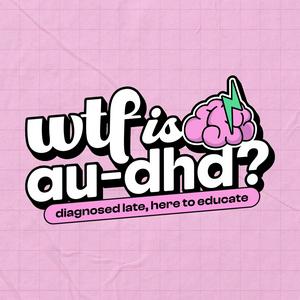
Get the free radio.net app
- Stations and podcasts to bookmark
- Stream via Wi-Fi or Bluetooth
- Supports Carplay & Android Auto
- Many other app features
Get the free radio.net app
- Stations and podcasts to bookmark
- Stream via Wi-Fi or Bluetooth
- Supports Carplay & Android Auto
- Many other app features


WTF is AuDHD?
Scan code,
download the app,
start listening.
download the app,
start listening.


